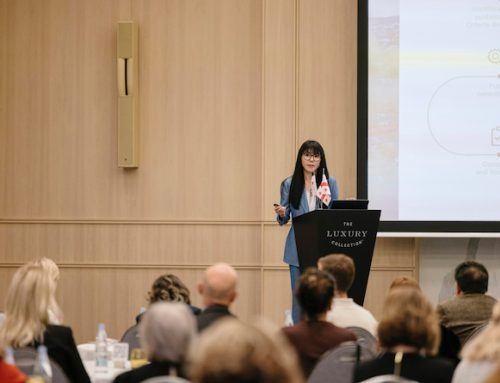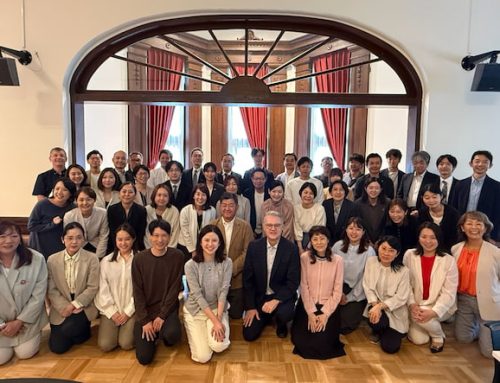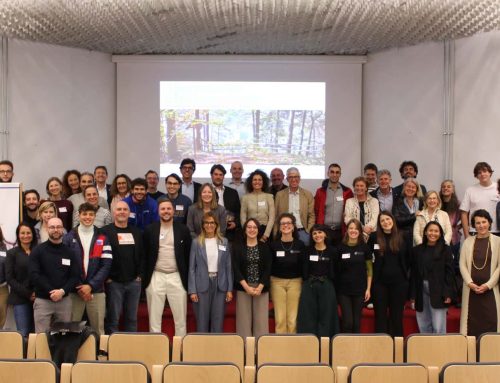 In April 2024, the Global Sustainable Tourism Council (GSTC), in collaboration with Visit Sweden and the Agency for Growth (Tillväxtverket), held the #GSTC2024Sweden International Conference in Stockholm, focusing on “Purposeful Travel.” This event brought tourism leaders and experts together to discuss sustainable growth in the tourism sector, with a special focus on Sweden’s long-term attractiveness as a travel destination.
In April 2024, the Global Sustainable Tourism Council (GSTC), in collaboration with Visit Sweden and the Agency for Growth (Tillväxtverket), held the #GSTC2024Sweden International Conference in Stockholm, focusing on “Purposeful Travel.” This event brought tourism leaders and experts together to discuss sustainable growth in the tourism sector, with a special focus on Sweden’s long-term attractiveness as a travel destination.
Following the conference, Visit Sweden launched a series of articles on “Sustainable Hospitality” (Hållbar Besöksnäring), capturing the event’s key insights and highlighting GSTC’s global commitment to sustainable tourism. The featured article, “This is How Tourism Builds Sustainable Attractiveness for the Destination Sweden,”(Så bygger turism hållbar attraktionskraft för resmålet Sverige) delves into how a balance of economic, environmental, and social sustainability can make Sweden a lasting, appealing destination.
Tourism is a powerful driver of global economic prosperity, contributing 9.1% to the global GDP in 2023 and creating 27 million new jobs worldwide. In Sweden, the sector’s impact is equally significant; tourism consumption generated 306 billion SEK in 2019, accounting for 2.5% of the national GDP and supporting 126,000 jobs. As tourism continues to grow, balancing this economic contribution with environmental and social sustainability has become paramount.
The Growing Demand for Sustainable Tourism
Today, sustainability is expected, not optional. Travelers are increasingly aware of their impact, but they are not inclined to pay extra for sustainability; they see it as part of the package. Although people primarily travel to relax, connect with loved ones, and explore new places, they increasingly value experiences that allow them to act responsibly and make positive contributions to destinations.
Sustainable Tourism in Sweden: Balancing Environmental, Social, and Economic Factors
- Environmental Sustainability: The tourism sector must prioritize eco-friendly practices, including adopting fossil-free and efficient transport options and preserving local ecosystems. For Sweden, this means that destinations and businesses must innovate to offer environmentally sustainable travel options.
- Social Sustainability: Tourism contributes to vibrant local communities, whether in urban centers or rural areas. Social sustainability in tourism encompasses respecting cultural heritage, supporting indigenous communities, fostering inclusive workplaces, and offering equal opportunities for skill development. These elements are essential for creating a tourism industry that uplifts both travelers and locals.
- Economic Sustainability: Sustainable tourism in Sweden also means economic resilience. Long-term, responsible management of resources and the promotion of local businesses are critical to ensuring tourism remains a positive force for economic stability.
All three sustainability pillars must remain balanced to avoid detrimental impacts on destinations. The United Nations World Tourism Organization (UN Tourism) defines sustainable tourism as a practice that takes into account economic, social, and environmental impacts while meeting the needs of all involved—from visitors to local communities.
Embracing Purposeful Travel: A New Era in Tourism
Conscious travel represents a shift in perspective, focusing on meaningful and lasting experiences rather than merely checking off travel destinations. It encourages travelers to be aware of their actions, to respect the communities and environments they engage with, and to actively contribute to the positive development of destinations. For Sweden, a country known for its innovative approaches and forward-thinking values, conscious travel aligns well with national goals of sustainable development.
For more insights about GSTC’s past Conferences check here.
Continue reading Visit Sweden’s original article here to explore these insights further. Also, read more about the article series Visit Sweden launched about “Sustainable Hospitality” (Hållbar Besöksnäring) here.




